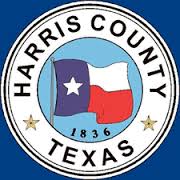I have four things to say about this.
The new slate of Democratic judges has approved a drastic revision to Harris County’s bail system that could serve as a model for a settlement in the historic lawsuit in which a federal judge found the county’s judicial rulings unjustly relegated poor people arrested on minor offenses to jail because they couldn’t afford costly bonds.
The 15 new court-at-law judges and new presiding Democrat who was not up for election voted Wednesday on the new bail protocol that will affect thousands. They have spent weeks hammering out a plan with the sheriff, the district attorney and county leadership and will ask the federal court this week to implement it as a foundation for a settlement.
County Court at Law Judge Darrell Jordan, the presiding judge, estimates that 85 percent of people arrested on misdemeanors will now qualify to be released after arrest on no-cash bonds, with a few exceptions for people who must await a hearing – for up to 48 hours – for bond violations, repeat drunken driving offenses and domestic violence charges. At that point, they may also qualify for personal recognizance bonds.
“What it means is that no one will be in jail because they cannot afford to get out,” Jordan said. “The only people who will be detained and have to speak to a judge are a very small subset who will be processed through the Harris County Jail and those carve outs are aligned with best practices from around the country.”
The change was widely celebrated.
“It’s a big day for Harris County,” said attorney Allan Van Fleet, who represents the judges in the federal lawsuit. “It will make Harris County safer and more equal and provide more efficient processing of people accused of misdemeanors.”
1. Elections have consequences. I almost can’t believe this is actually about to happen.
2. Just a reminder, many of the people now in the jail are there awaiting trial. They have not been convicted of anything. Many others like them in the past never were convicted of anything, and many more pled guilty to something so they could get out. This will ensure there are far, far fewer people like them in the future.
3. The question of who was in jail awaiting trial and who was not was always largely about financial wherewithal, not about risk and danger to society. Remember, Robert Durst was granted bail.
4. One hopes that having far fewer inmates, many of whom don’t need to be there, will allow us to do a better job of ensuring the safety of those inmates, and enabling the jail to meet state standards. No more inmate suicides, please. We really need to do better than that.


This is great news!
The problem was never cash bail itself, but the rigid bail schedule.
$100 bail may be more than enough to ensure one person’s appearance in court; for another person charged with the same thing, $2000 may not be enough. When both got $2000 bail, that kept the first person in jail awaiting trial while the other could take a long vacation and lose the bail money.
This is one solution, but another would have simply been to tailor the existing system to individual defendants.